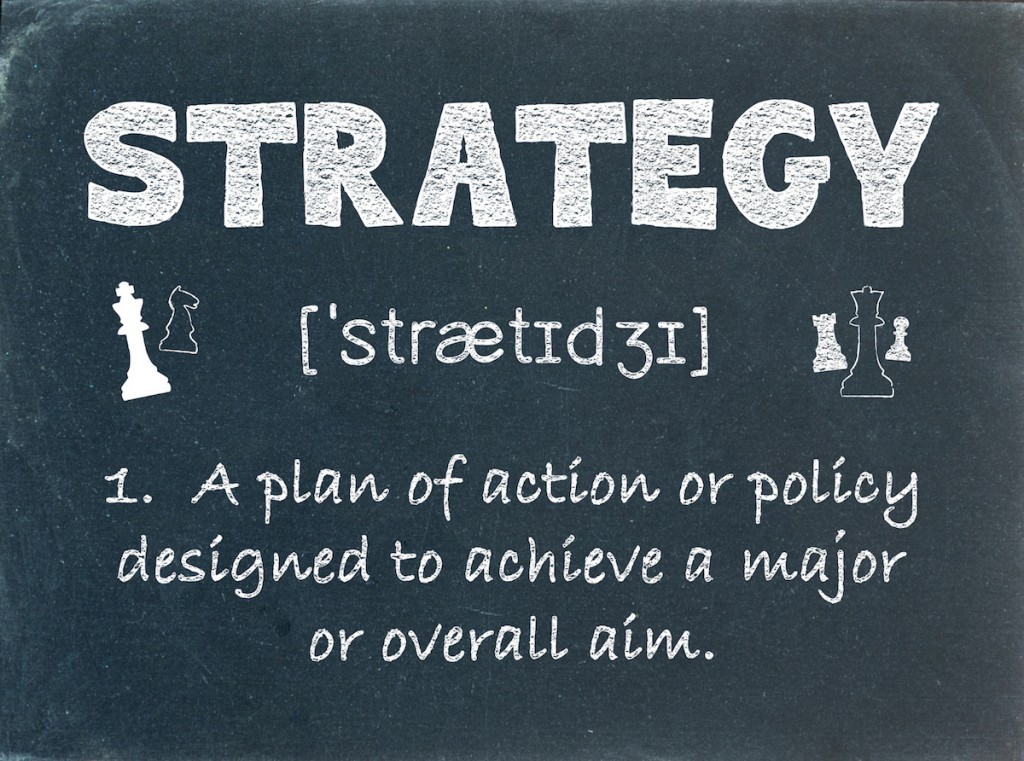|
An interesting development hit the press today: Matthias Mueller, the incoming chief executive of Volkswagen AG, reportedly wants to embrace a new strategy for the beleaguered group. That an incoming chief executive wants to put his mark on the business is not particularly newsworthy, it is commonplace. The interesting piece is the board's response. Will it entertain a new strategy, or will it assert its authority as the top-most decision-making authority? The challenge for the VW board is to decide whether the existing strategy is satisfactory and well-implemented (notwithstanding the scandal relating to the US market emission standards), or whether the company's strategy is flawed. Given the strong financial performance over recent years, the more likely of the two options is that the strategy is OK. If this is correct, the board's decision becomes a straightforward assessment of power. Who is in control, the board or the chief executive?
0 Comments
 In recent months, news of another round of corporate scandals (Mintzberg thinks 'syndrome' is a better descriptor) have dominated our newspapers and Internet news feeds. All seem to be failures of corporate governance: HSBC, FIFA, Toshiba and, most recently, Volkswagen. While failure is nothing new, why have these failures occurred and why now? What's happening (or, more probably, not happening) in our corporate boardrooms at the moment? While each case is to some extent unique, an interesting pattern starts to emerge if we stand back a little and take a holistic view of several failures together: a well-regarded business, with both a strong trading record over an extended period and great brand equity commensurate with its public reputation, hits turbulence leading to failure or scandal. Questions are asked, investigations follow, significant irregularities are exposed and fingers are pointed. Eventually the spotlight is turned onto the board. All roads lead to Rome, after all. The seemingly steady flow of failures has seen a great malaise descend over the business and investor community during the northern summer. Measures developed to reduce the incidence of failure (including the OECD corporate governance principles and various in-country codes) have not had the intended effect. Indeed, they have rung hollow. To the casual observer, the situation seems to be bad, possibly hopeless. However, glimmers of hope are starting to appear. In the past six weeks, I have asked all of the director groups that I have spent time with for their opinion—as a litmus test of sorts. A strong majority of the 350+ directors across several countries (England, Eire, USA, New Zealand and Australia) say things need to change. Most think that current conceptions of board practice and corporate governance are not helpful if the goal of business is value creation; and that strategy needs to feature more prominently on the board's agenda. While most of the commentary is anecdotal, it is consistent with emerging research. Could this small sample of emerging and established directors of mid-size businesses be the vanguard of change? I've begun exploring ideas with several boards—on the assumption that the answer is yes. However, this is a case of the more the merrier so please get in touch if you want to 'join the party'.
 News that Volkswagen AG has been systematically pulling the wool over the eyes of its customers, regulators and the stock market has resulted in a predictable and rightful backlash this week. The stock price has plummeted, the brand reputation is in tatters and the chief executive is gone (albeit with a stellar severance package and not before attempting to deflect blame towards others). The crisis raises all manner of issues, and many different levels. That the board apparently knew nothing of the problem is a bitter pill to swallow. Why not? Was the board asleep at the wheel, or was something else amiss? That it then made all manner of comments heightened the concern. Once the emission cloud settles and people gather to understand the root cause, the folk at Volkswagen could do far worse than to look in the mirror—and specifically at how corporate governance is practised. That the two-layer board structure lacked knowledge suggests either ignorance (the board was asleep) or collusion. Neither option covers the boards in glory. Might this sad case take us closer to a tipping point, of finally admitting the extant conception of corporate governance (a compliance framework of processes and controls, predominantly) is conducive to neither long-term business performance nor value creation? And, if so, will action be taken to embrace new conceptions of corporate governance, board practice and value creation? For the good of all stakeholders and society more generally, I hope the answer is yes. Are you troubled by the Volkswagen experience? If you want to explore new conceptions of corporate governance that are informed by robust research and real-world experience, and test their applicability in your boardroom, please get in touch. I stand ready to help.
Several weeks ago I reported, with a sense of frustration, the seemingly slow progress towards the examination of my doctoral research. The lack of any visible progress since the beginning of June has engendered a sensation not unlike a phony war. However, that changed late last week. Some sixteen weeks after the thesis was submitted for examination, a date for the viva voce has been set. I have been called to meet the examination panel on 22 October 2015. That a date has been set is good news: I now have a target to work towards. A meeting has been scheduled with the panel convenor (1 October) to understand the process and, importantly, the expectations of the examiners. From there, preparations will start in earnest. The most pressing priority is to re-read the thesis from cover to cover—all 341 pages of it. It'll be interesting to see how much I can remember, given I haven't opened the document since the beginning of June!
The board's involvement in strategy has been hotly debated in some quarters in recent years, especially as the focus of attention for business performance has moved from the chief executive to the board. Is strategy the domain of management, or of the board? Thankfully, the extreme options (strategy is totally the responsibility of management or imposed by the board) are no longer widely supported. The discourse seems to be coalescing on the more collaborative options of a board-led, managment-led or a joint development process—although the merits of which one of these is 'best' continue to be debated. Once directors and managers understand what strategy is (check the graphic), a decision to actively involve the board seems obvious. If the purpose of the board is to ensure the long-term performance of the company, in accordance with the wishes of shareholders, why wouldn't the board roll up its sleeves? An increasing number of commentators are now nailing their colours to the mast on this point. For example, this article, published in Director (the Institute of Directors' magazine), recommends that all non-executive directors (NEDs) should be actively looking at all strategy options and be making strategic decisions. I couldn't agree more, but would add that all directors (not just NEDs) should be involved in the process, together. While this recommendation demands more of directors, emerging research seems to suggest the approach is not without merit.
Are you interested in the latest developments in board and corporate governance research? If so, you might like a sneak peek at two new papers, both of which have practical implications for board research and boards in action. The full papers will be presented at two leading corporate governance conferences in Europe in November.
Summaries of conference presentations will be posted here during the conferences. Use EIASM15 or ECMLG15 in the search field to go directly to the postings. If you are interested in attending the conferences or want to know more about them, follow these links to the EIASM and ECMLG conference pages. If you want more information about my research (including its practical application in boardrooms), please get in touch.
The modern society we live in has many benefits. Life expectancy and well-being have steadily improved for many: health and education being important building blocks. Most would agree that progress has been 'good'. Paradoxically, life has become more complex in some quarters, and answers to some everyday problems remain elusive. The human response to complexity—dissection in search of 'truth' and understanding—has not helped. The reductive assumption that the sum of knowledge of the parts explains the whole is helpful in science, but in social science it fails. Companies (boards, in particular) are a case in point. The pursuit of a single truth ('best practice') is about as helpful to understanding how boards work as dissection studies of body parts is helpful to understanding how humans interact or experience life. The problem is that when boards are dissected and individual elements are studied in search of answers about how boards work, the subject of research is no longer the board. Thus, the very essence of the socially-dynamic entity (the board) being studied is lost. As a consequence, any conclusions cannot, by definition, be representative of what the board as a whole is, does, or might contribute. If we are to understand how boards work and to discover any relationship between boards and business performance, boards must be studied holistically: both in situ and in action. While every situation considered by a board is (to a greater or lesser extent) unique, emerging research suggests that some patterns can be discerned if the empirical data collected from within the boardroom is abstracted. An important dependency appears to be the decisions made by the board when it is in session. The quality (and, therefore, the potential impact) of board decisions appears to be associated with the quality of social interactions between directors and qualities of the directors themselves, as they seek to fulfil their duties. These qualities and social interactions are the subject of my doctoral research, currently before the examination panel. I look forward to sharing the results of this work, here and elsewhere, once the examination process is complete.
This recently published summary of a meeting held to discuss the role of the company secretary caught my eye today. The company secretary has an important supporting role (preparing reports including compliance reports, recording minutes and managing the processes of the board) in most companies. However, some meeting participants appeared to suggest that a greater role was appropriate: The meeting followed the publication of ICSA’s report The Company Secretary: Building trust through governance, which found that company secretaries ‘make a significant contribution to board performance’, supporting ICSA’s wish to reinstate the legal requirement for all large private companies to have company secretaries. The topics that were discussed at the roundtable included governance, messaging, tone, teaching, acting as the ‘radar’ of a company and being the ‘bridge’ between the company and stakeholders. This conception is helpful, except that it perpetrates the widely-held view that corporate governance is a conformance activity. However, the responsibility to act in the best interests of the company in pursuit of shareholder wishes lies with the board. Thus, a conformance conception provides the wrong basis upon which to understand board and company secretarial contributions. Someone needs to have their finger on the pulse in terms of strategy, monitoring, process and shareholder communications. Ideally, these are tasks for the board as it discharges its duties. In those cases where the board is weak, aloof or less than fully engaged, these tasks tend to fall on the company secretary (or even the chief executive in some cases): the requisite processes and compliance tasks still need to be performed. Thus the thinking of many in the governance community including those cited in this report it would seem. An expanded conception of the company secretary role may remedy the symptoms (and serve the interests of company secretaries hoping to elevate themselves), but it does not address the root cause. The focus needs to be on the board, its roles and its contribution to business performance. Candid discussions around the board table and, potentially, with shareholders will probably be necessary. However, the benefits of resolving the board's role are likely to be many including that the company secretary would be released to perform their role as first conceived: to provide an outstanding administration and support service.
My nine-day visit to the UK and Ireland to discuss board and corporate governance topics and to share emerging research with board directors, executives and academics is drawing to a close. From meetings in the hallowed halls of the Institute of Directors on Pall Mall, office buildings, various fine dining restaurants and cafés, and university premises in Wolverhampton and Ulster; to master class presentations and a guest lecture, it has been a delight to engage with people who are deeply interested in corporate governance and the board's role in business performance. Thank you. Now, the task of addressing the numerous requests for more information, and to schedule future meetings, speaking and advisory engagements beckons. This is my priority over the coming days. Amongst the enquiries and discussion notes, several people have asked for more information about strategy in the boardroom. While I have written about this in the past, and strategy has been a core element in my doctoral research, interest in up-to-date applied research appears to be high. Given this, my intention is investigate some of the practical challenges faced by boards over the coming months and to publish the findings. However, such research needs willing participants... If you or your company board might be interested in participating in research, please get in touch. I am particularly interested in publicly-listed firms, high-growth businesses and social enterprises; in the UK, Europe, the US and Australia. Your expression of interest and any decision to participate (or not) would be entirely confidential, and neither you nor nor your company or social enterprise would be identifiable in any research report that ensues.
Board meetings are uncompromising places of work and decision-making. Not only are boards themselves inherently socially-dynamic (they are make up of people, after all!), but every situation is different and directors meet infrequently and they generally need to act on incomplete data. Consequently, decision-making effectiveness is largely dependent on directors working well together when the board is in session. However, that is much easier said than done. In fact, recent research suggests that we humans struggle to understand the minds of others, even though we think we are good at it. This renders group dynamics difficult, at best.  One of the biggest barriers to understanding is egocentrism—we can't get over ourselves. We over-estimate knowledge and capability, including that of others to understand what we say or mean. The problem is exacerbated by the technological world of electronic mail (which strips out tone and meaning), and even more so the abbreviated 140-character world of Twitter and text messages. If directors are to make effective contributions in boardrooms they need to get over themselves. Older and more experienced directors are not exempt from this problem—they are just as prone to making assumptions as their younger or less experienced colleagues. Techniques that might be helpful for directors wanting to make effective contributions include meeting together in social settings to learn more about each other; asking questions during board meetings with open hands and a humble spirit; careful (reflective) listening, to limit assumptions and check understanding; and, the demonstration of a collective empathy amongst directors. Perhaps it might even be helpful to appoint a psychologist onto the board! Please note this is not a categorical list—if you have evidence-based suggestions, please feel free to share them.
|
SearchMusingsThoughts on corporate governance, strategy and boardcraft; our place in the world; and other topics that catch my attention. Categories
All
Archives
May 2024
|
|
Dr. Peter Crow, CMInstD
|
© Copyright 2001-2024 | Terms of use & privacy
|




